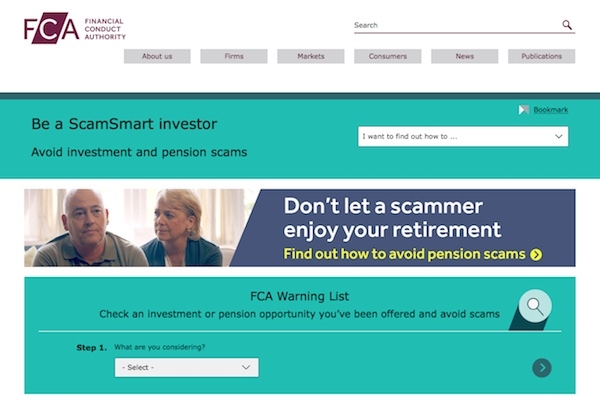Investors saved more than £2m in 2022 by spotting scams, according to new figures published today by the Financial Conduct Authority.
The estimated was based on the number of people who reported crooks to the FCA.
The FCA said its research among more than 1,000 investors who have avoided a suspected scam, showed how people are “turning detective” against scammers, using research skills and gut instinct.
The regulator’s ScamSmart campaign aims to spotlight the skills used by those who have stopped scammers in their tracks, to help protect other investors.
Around a third of investors who managed to avoid a scam said “gut instinct” helped them to distinguish between genuine and bogus opportunities, according to the research.
Finding mistakes in material (34%) and requests for personal details to secure the opportunity (34%) were also common warning signs that helped people to avoid being defrauded.
Other warning signs that made investors suspicious included being contacted out of the blue (33%) and being pressured to invest before an “offer” ended (26%).
The FCA has urged investors to check the warning list on its website before making any investment decisions to help identify those who are not authorised to operate, or flag to investors where additional research is needed.
It warned that if investors were to deal with an unauthorised firm, they will not be covered by the Financial Ombudsman Service or Financial Services Compensation Scheme (FSCS) if things go wrong.
Of those surveyed who had avoided investment scams, a third came across the opportunity via email, while a quarter received a phone call.
Once investors realised the opportunity was fraudulent, 42% warned family and friends, while a further 27% posted comments on social media to warn others.
Mark Steward, executive director of enforcement and market oversight at the FCA said: “Scammers are becoming more and more sophisticated, coming up with different tactics, such as impersonation texts or calls, and using the cost-of-living pressure as a way to tempt investors into false opportunities.
"It’s great to see so many investors being able to spot the signs of a scam, and helping others to do the same but you don’t need to be a Sherlock Holmes to spot scams."
Calls to the FCA about scams have increased 193% in the last five years.
To help remind investors of the warning signs, the FCA has created an Augmented Reality (AR) experience for investors to use. Usable on mobiles, the AR sees several everyday objects representing the main warning signs:
- Phone – Unexpected contact: scammers can cold-call or text, but contact might also come from online sources, or in person such as at an exhibition or seminar.
- Piggy bank – Unrealistic returns: scammers often promise tempting returns that sound too good to be true.
- Clock – Time pressure: scammers might offer you a bonus or discount if you invest before a set date.
- Book – False authority: Scammers might use convincing literature and websites, or claim to be regulated (or authorised) by the FCA when they’re not.
- Leaflets – Social proof: scammers might share fake reviews and claim other clients have invested.
The research was conducted Censuswide, which was commissioned by the FCA to survey 1,036 UK adults who currently or previously have held investments, and have avoided a suspected scam.

